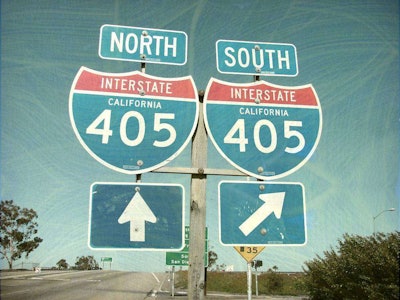
Two of the proposals have one key element in common: They would use funds from a tax known as “repatriation,” in which companies could bring money currently held in foreign banks back to the U.S. and be taxed just once on their return.
Here’s a brief look at each:
President Obama’s plan: The White House option is essentially an expansion of the four-year, $302 billion GROW AMERICA Act submitted by Obama and DOT head Anthony Foxx in 2014. It would use a repatriation tax of 14 percent, which the administration says would produce $238 billion in revenue. Obama’s plan designates a combined $317 billion to U.S. roads and bridges from the 2016 fiscal year through the 2021 fiscal year.
Boxer-Paul plan: Senators Rand Paul (R-Ky.) and Barbara Boxer (D-Calif.) teamed up to produce a bill that would also use repatriation tax that they say could generate $2 trillion in tax revenue on earnings currently held overseas. The Invest in Transportation Act would tax the foreign earnings at a rate of 6.5 percent, the entirety of which would be designated for the Highway Trust Fund.
House Republicans’ plan: A few House Republicans last week floated the idea of expanding oil and gas drilling on federal lands and offshore as a means to help boost the Highway Trust Fund.
All three plans face challenges in Congress. President Obama’s 2014 GROW AMERICA plan garnered little interest from lawmakers last year, and this year’s plan, which was tucked inside of a larger $4 trillion spending plan for the 2016 fiscal year, likely will find little to no footing in the now-Republican controlled Congress.
Likewise, the House plan seems to be a nonstarter and has failed to gain traction in recent years when proposed.
The plan submitted by Boxer and Paul may have the most legs, given it’s being presented as a bi-partisan approach from the start. But it’s already faced criticism from some key figured in the highway bill saga, including Sen. Orrin Hatch (R-Utah), who heads the Senate’s Finance Committee — the one responsible for finding the funding for any highway bill produced.
Last week’s proposals included a five-year, $1 trillion plan from Sen. Bernie Sanders (I-Vt.), a six-year, $170 billion measure introduced in the House and an impassioned plea from Secretary Foxx to a Senate committee about the need for Congressional action on infrastructure funding.
Also last week, the American Trucking Associations called on lawmakers to raise the tax on gasoline and diesel purchases, saying the “user pays” approach makes the most sense. The gas tax has traditionally been the funding mechanism for the recently downtrodden Highway Trust Fund.
The tax — a flat rate of 18.4 cents a mile for gasoline and 24.4 cents a mile for diesel — has not been increased since since 1993. Those taxes supply more than 80 percent of the revenue that goes to the Highway Trust Fund, which comes up about $15 billion short annually. Inflation and more fuel efficient vehicles have eroded the HTF’s revenue stream in recent years.
Increasing the tax rate on fuel purchases — and tying the rate to to inflation — would alleviate the HTF shortfalls, ATA says.
Click here to read more on last week’s highway funding happenings.










